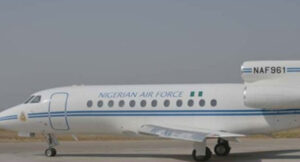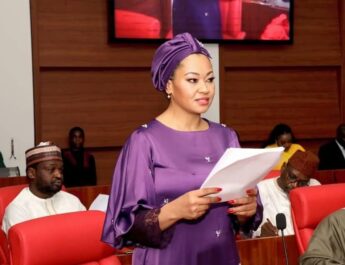Nigeria’s political elite and its ruling class continue in careless ostentatious living while malnutrition and starvation occasioned by high cost of basic food items keep ravaging over 60 percent of its poor masses
By Ikenna Princewill
There is scarcity of food items in Nigeria. There are two root causes of this malady, one, inability of the country to produce enough food for the citizens. Two, the ever rising price of available food items in the market since last year. In organized climes, basic necessities such as food, clothing, housing and transportation are the cheapest which almost every citizen can afford. Here in Nigeria, because of government’s insensitivity, the above necessities are always beyond the affordability of the masses.
Basic food items such as garri, rice, beans, yam, plantain, semovita, oil, onion, pepper, tomato, egusi, palm oil, groundnut oil, crayfish, meat, fishes, turkey, chicken, eggs, Irish potato among others, have remained out of the reach of common Nigerians since the government of President Bola Ahmed Tinubu began last year. On weekly basis, the prices of these staple food items continue to soar, causing untold hunger in the country. This is due to the scarcity of the food items occasioned by their low production due to the reasons of insecurity and President Tinubu government harsh economic policies.
Last April, food inflation in the country rose to as high as 40.53 percent. The scarcity of food items, and/ or the consistent rising of the prices of available staple foods in the local market, have both resulted in malnutrition and starvation of the over 130 million confirmed poor masses in the country.
There is, therefore, palpable famine in the land, experts claim.
Although some refer to famine strictly as a state of “extreme scarcity of food”, this cannot be regarded as a comprehensive definition when juxtaposed with the definitions
Of Wikipedia, United Nations and the Oxford Dictionary respectively. Based on the definitions of these three groups, there is famine in Nigeria since Tinubu took over power.

The Wikipedia defines famine as “Severe and prolonged hunger in a substantial proportion of a region or country resulting in widespread and acute malnutrition and death by starvation and disease”.
The United Nations says “Famine is essentially a technical term, referring to a population that faces widespread malnutrition and hunger-related deaths due to lack of access to food “.
But the Oxford Dictionary states that, famine is “Crisis in which large numbers of people in an area cannot obtain enough food to sustain themselves “.
In regards to these universal definitions of the word, famine, Nigeria has been hit by the ugly phenomenon, especially since the removal of fuel subsidy and floating of the country’s currency in 2023. The evidences abound. The rural communities and villages are worst hit, according to various reports monitored by this medium. Today under Tinubu government, an average family of five that wants to have a three-square mill must spend at least the sum of N24,000 to obtain the various staple food items required.
The New York Times Editorial of June 11, 2024 which captured the dire economic situation in Nigeria confirmed that there is famine ravaging the country. Though the reputable news medium did not employ the word famine in its Editorial, the pictures of hunger and starvation it painted in the article aligned with the definitions of famine given by UN, Wikipedia and the Oxford Dictionary.
The New York Times in the article titled, “Nigeria Confronts its Worst Economic Crisis in a Generation”, said in part, “People in Africa’s most populous nation are suffering as the price of food, fuel and medicine has skyrocketed out of reach of many.
“Nigeria is facing its worst economic crisis in decades, with skyrocketing inflation, a national currency in free-fall and millions of people struggling to buy food.
“The pain is widespread. Unions strike to protest salaries of around $20 a month. People die in stampedes, desperate for free sacks of rice. Hospitals are overrun with women wracked by spasm from calcium deficiencies.
“The crisis is largely believed to be rooted in two major changes implemented by a president elect 15 months ago: the partial removal of fuel subsidiaries and the floating of the currency, which together have caused major price rises.
“A nation of entrepreneurs, Nigeria’s more than 200 million citizens are skilled at managing in tough circumstances, without the services the states usually provide. They generate their own electricity and source their water. They take up arms and defend their communities when the armed forces cannot. They negotiate with kidnappers when family members are abducted. But right now, their resourcefulness is being stretched to the limit.
“On a recent morning in a corner of the biggest emergency room in northern Nigeria, three women were convulsing in painful spasms, unable to speak. Each year, the E.R at Murtala Muhammed Specialist Hospital in Kano, Nigeria’s second largest city, received one or two cases of hypocalcemia caused by malnutrition, said Salisu Garba, a kindly health worker who hurried from bed to bed, ward to ward.
“Now, with many unable to afford food, the hospital sees multiple cases everyday.
“More than 87 million people in Nigeria, Africa’s most populous country, live below poverty line – the world’s second-largest poor population after India, a country seven times its size. And punishing inflation means poverty rates are expected to rise still further this year and next, according to the World Bank.”.
The Edo State governor, Godwin Obaseki, argued that the present scarcity of food is a result of the inability of the country to produce enough food for the citizens. Receiving a delegation from the World Bank last month, Obaseki argued, “Nigerians are in a dire situation, and one reason why we are having high food inflation is because of low production as we don’t have any foreign exchange anywhere to substitute with imports. We are not producing enough, that is the greatest problem facing Nigeria”.

In the midst of the dismal atmosphere, the ruling class and the political elite are living a wasteful life as if all is well with the obviously ailing country. In May 2024, the Federal Government wasted billions of naira in changing the National Anthem. Last month, the presidency came out to say it wanted to procure another Presidential Jet for Tinubu, his Vice, Kashim Shetima and the wife of the president, Oluremi Tinubu.
The procurement of the Presidential Jet has faced public odium, as members of the public have requested that Tinubu, his Vice, ministers and members of the National Assembly should reduce their level of opulence and ostentatious exhibition, and make some sacrifices in the face of the dire reality on ground, including shelving the idea of a new Presidential Jet. But the President of the Nigerian Senate, Godswill Akpabio, has while tonguelashing Nigerians for criticizing the presidential aircraft, stated that the 10th Senate would not hesitate in approving the procurement of the jet whenever Tinubu brings its official request to the National Assembly.
To add insult to the sensibility of the starving citizens, President Tinubu had confronted Nigerians with the annoying claim that poverty and suffering are not found only in Nigeria. Receiving a delegation of the National Assembly members who paid him an Eid-el-Kabir visit on Monday, June 17, 2024, President Tinubu said, “Yes, there is poverty, there is suffering in the land. We are not the only people facing such but we must face our challenges”.




